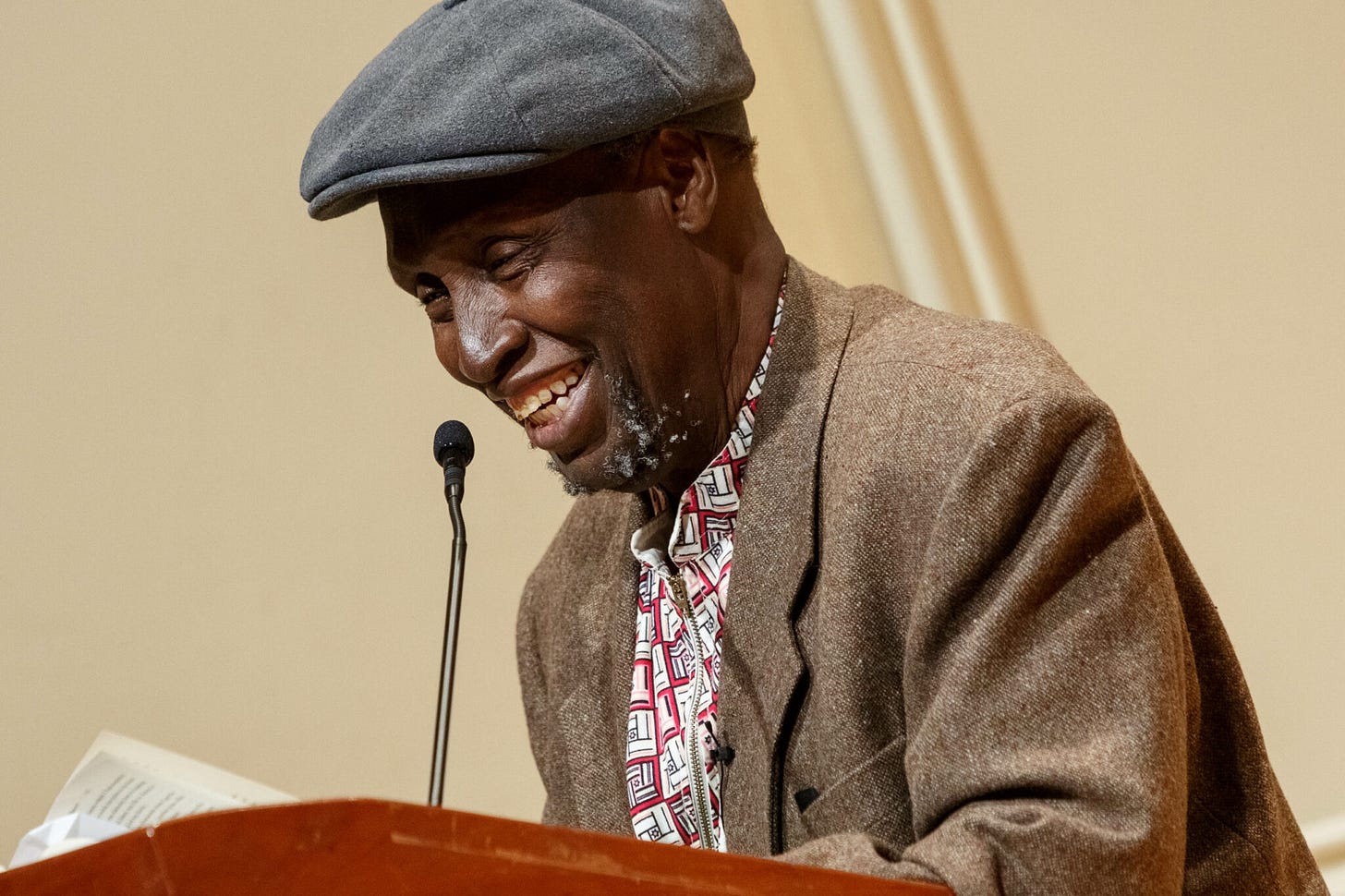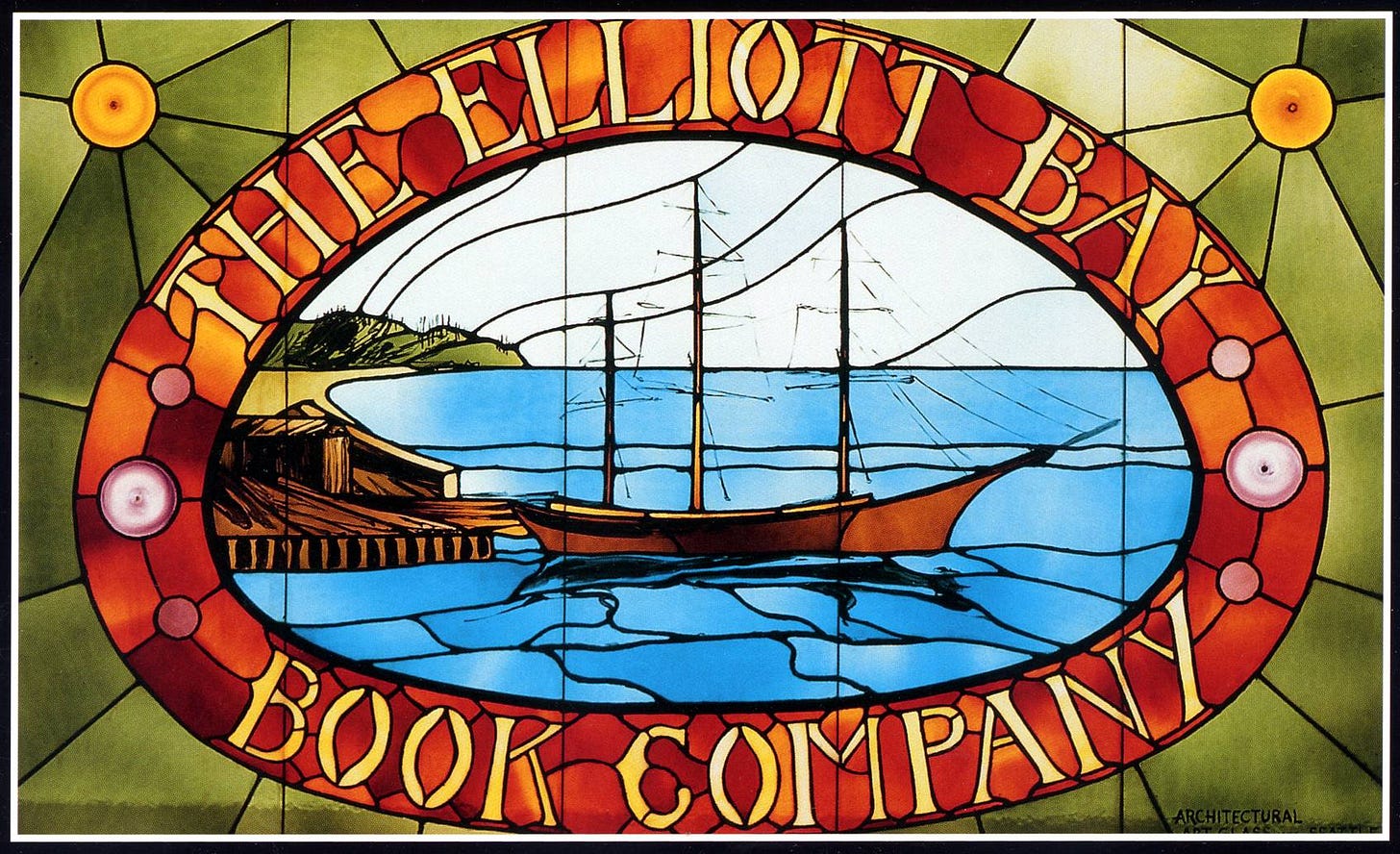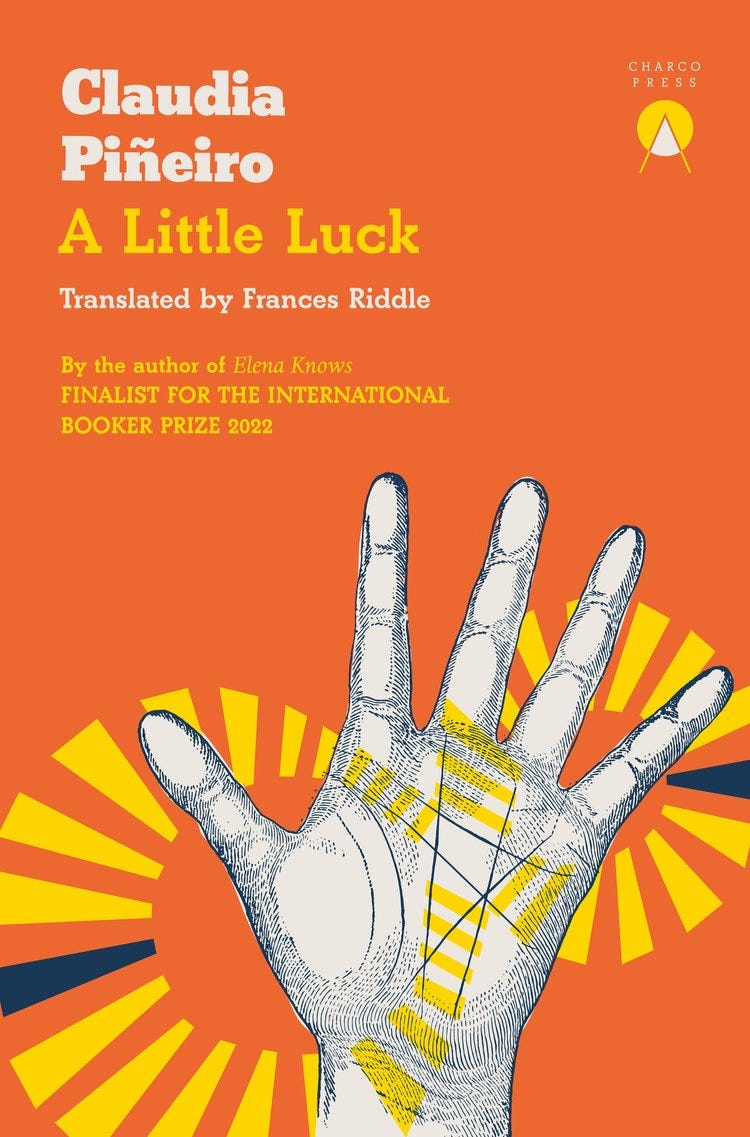Ngugi wa Thiongo
There they are across my work room, the spines of maybe four dozen books I bought (not counting the ones on the Kindle): THE UNREAD.
Picked up in a bookshop . . . ordered online from Elliott Bay Books or Abebooks.com or Bookshop.org . . . came via subscription from Archipelago Books or & Other Stories . . . laid on me by sisters-in-law, friends, former studenti . . . and a few appearing inexplicably under the cover of darkness.
THE UNREAD have their own shelf where they’re stacked on their sides. The archaeological principle (deeper down = older deposition) is no good here—too much shuffling has gone on. But I remember buying Edith Grossman’s translation of Don Quixote when the paperback came out in 20051. Eighteen years would seem ample time to work it in, but it’s like when your Significant Other asks about a household task of long standing—It’s on the to-do list, you explain, it just hasn’t quite worked its way to top yet.
Here’s a handsome Penguin paperback of Arnold Bennett’s, The Old Wives’ Tale (1908), “his masterpiece.” It’s survived repeated cullings, so, deep down, I must intend to read it . . . just not today. It’s almost precisely as thick as Don Quixote, which could be part of the problem.
Here’s Love in the Days of Rebellion, the second volume of Ahmet Altan’s, The Ottoman Quartet2 3.
Here’s Ngugi wa Thiongo’s Wizard of the Crow (2006)4.
Here Roberto Bolaño’s The Savage Detectives (1998, Spanish; 2007, English).5
And so many more, including The Drop Edge of Yonder by Rudolph Wurlitzer,6 descendant of the jukebox magnate, screenwriter of Two-Lane Blacktop and Pat Garret and Billy the Kid, among others, author of the cult psychedelic novel, Nog (1968), etc. Blurbed by Patti Smith, Sam Shepard, John Ashberry, Alan Arkin, Robert Downey. Not sure why I thought I had to have a copy . . . this one’s stamped Withdrawn from the Thomas Branigan Memorial Library [in Las Cruces, NM]. The novel’s epigraph is from the Laṅkāvatāra Sūtra:
“Things are not as they appear. Nor are they otherwise.”
Reading Project/Challenge:
If your unread books are scattered about, go collect them and stack them in one spot where you can’t not see them.
Now, decide which ones you’re never going to read—I know, I know, but you have got to weed the collection, as my librarian wife puts it. When you’ve got a small sackful, walk them around to the neighborhood’s little free libraries.
Then, home again, pick out three of the ones left, and work them into the flow during the next three months. C’est tout. Bon courage!
Update:
In the Small Press post a couple of months back, I promised to acquire and read two of those novels. Status Report: Have both books7, have read neither, but they’re near the top of the queue. Mitigating factor: During Victober read three Trollopes back to back to back (which soaked up most of November as well). Now I’m finally getting to Claudia Piniero’s novel, A Little Luck8.
Then Alissa Hattman’s Sift (2023), then The Best American Short Stories 2023, then Lungfish and Landscapes.
Then, a new promise, three from THE UNREAD stacks!9
Cervantes: I used to cite what I called the Don Quixote Dictum: When offered a mediocre book to read, say in a firm voice, “I haven’t read Don Quixote yet and you expect me to read this??”
Altan: Bought because I read the first installment, Like a Sword Wound (1997, Turkish; 2018, English, from Europa Editions, a major source of fiction in translation, along with two of my other favorites, Archipelago and Charco. A handful of Europa writers: Alessandro Baricco, Alina Bronsky, Steve Erickson, Elena Ferrante, Mieko Kawakami, Hiromi Kawakami, Amélie Nothomb, Christa Wolf, Charlotte Wood. Europa puts out handsome artifacts, and (like Archipelago, Charco, and New York Review of Books Press) have a uniform design, making it a snap to spot them on a library or bookshop shelf.
Altan: You should read about Altan’s life, which includes imprisonment under Turkey’s repressive regime.
[https://en.wikipedia.org/wiki/Ahmet_Altan]
Wizard of the Crow: Ngugi wa Thiongo, a Kenyan, is one of the world’s great writers, often mentioned as a Nobel contender. Playwright, essayist, memoirist, in addition to prolific novelist. He has translated many of his works from the original Gikuyu into English. His novel, A Grain of Wheat (1967), is considered a classic.
Bolaño: Here’s a piece on him from The New Yorker (2012): https://www.newyorker.com/books/page-turner/in-the-labyrinth-a-users-guide-to-bolao . . . the writer warns you not to read 2666 first. Naturally, that’s what I did. Bolaño died of liver failure at age 50 (same age as Ray Carver, by the way—two sad losses). He was the perhaps the greatest heir of the Latin American Boom, from which emerged Garcia Marquez, Fuentes, Cortazar, Vargas Llosa, Borges, and many others. Strangely, new Bolaño fiction has been appearing every year or two since his death. Must’ve left a very deep trunk.
Wurlitzer: Link to Dennis Cooper’s blog post on Wurlitzer: https://denniscooperblog.com/spotlight-on-rudy-wurlitzer-the-drop-edge-of-yonder-2008/
Lungfish, Meghan Gilliss (2022), Catapult Books. Landscapes, Christine Lai (2023), Two Dollar Radio.
Charco published one of my favorites from last year, Elena Knows, and in 2024 will do another, Time of the Flies.
Unless, you know, I get some really enticing reads for Christmas . . .






I’ve started weeding out the books I likely won’t read ever, but it’s a painful process!
My bedroom book shelves, three of them built into the wardrobe, are exclusively reserved for unread books, and they are always stuffed full. When gaps appear on the shelves, it prompts a primal urge to peruse my wish lists at Wordery and Kennys and FNAC, and other booksellers which serve my region. Those undevoured books are the first thing I see in the morning and the last at night. Since they're filed upright rather than stacked on their sides like you, this gives me the opportunity to slide out two or three at a time, examine them, sample their opening pages, and them put them back as I spend time contemplating which one exactly suits my current needs and mood.
Coincidentally, Edith Grossman's translation of Don Quixote, in hardcover, is also a long-time resident of my unread shelf. But I've already read two other English translations in full, and the Rutherford translation is so satisfying that I may never get around to Grossman's perhaps too modern American style version. So I'll call this a never-to-read and open the space to something similarly fat from one of those wishlists, maybe Lawrence Durrell's Alexandria Quartet. But the longest-serving inmate of my unread shelves is Heliodorus's An Egyptian Romance, credited as the world's first romance novel. I will follow your instructions and work this Syrian Greek into the flow.